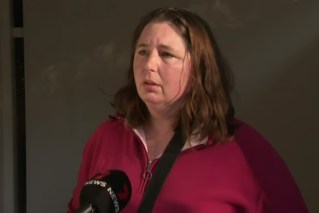A year too late for Hannah, but Premier takes tentative steps on coercive control
A taskforce will be appointed to advise on coercive control reforms, honouring a Labor commitment to consult before taking action

The domestic violence murders of Hannah Clarke and her children shocked Queensland. (Photo: Facebook)
In the wake of the horrific murders of Hannah Clarke and her children – one year ago on Friday – there were calls for more to be done to prevent domestic violence, protect the victims and punish the offenders.
The Liberal National Party promised a criminal offence of coercive control, which is another form of non-physical abuse that includes controlling what someone wears, limiting their access to money or friends, and tracking their location.
However, Labor had doubts over the best approach to take, and went to the election promising to consult on possible reforms.
On social media this morning, Premier Annastacia Palaszczuk announced an independent taskforce, later naming former president of the Queensland Court of Appeal, Margaret McMurdo, as chair.
Palaszczuk said the taskforce would be ready to confront the “oppression” of coercive control within weeks.
“The taskforce will consult with a wide range of survivors, domestic, family and sexual violence service providers, legal experts, domestic and family violence experts, and the community,” she said.
Attorney-General Shannon Fentiman said it was a “significant step forward” in combatting the problem in a well-considered way.
Fentiman said the taskforce would be separate to an existing domestic violence prevention committee and report back to government by October. A bill could then be introduced into parliament early in 2022.
“It is so important to take the time to get this right,” Fentiman said.
The Opposition’s Amanda Camm welcomed the announcement, saying she hoped a new offence would also protect family members like children and the elderly.
The government conceded months ago that the mentions of coercive control in existing legislation were insufficient, however it cautioned that specific criminal offences in other jurisdictions had low conviction rates due to the evidentiary requirements.
It remains to be seen whether existing criminal offences might be upgraded or a new offence of coercive control added to the code. There is also no timeframe for action, with the government only making it a priority this four-year term.
Clarke’s parents, Lloyd and Clarke, have sought to educate the community on the nature of coercive control and how dangerous it can be.












